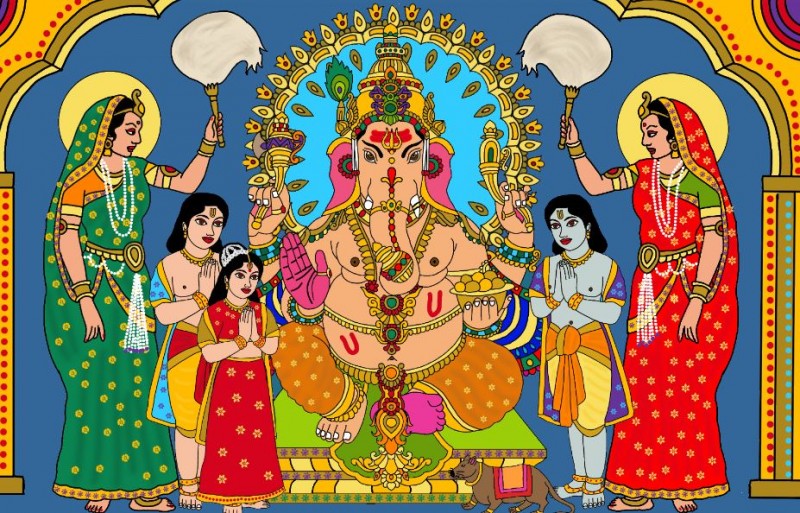
Lord Ganesha, the revered elephant-headed deity, is one of the most beloved and widely worshipped gods in Hinduism. He is the lord of wisdom, prosperity, and remover of obstacles, making him an integral part of Hindu religious and cultural traditions. While Ganesha's popularity and significance are well-known, his family, comprising his wife and children, also hold a special place in Hindu mythology. In this article, we will explore the divine family of Lord Ganesha and delve into the significance of his spouse and offspring.
Ganesha's Wife - Goddess Siddhi
Goddess Siddhi, also known as Riddhi, is the divine consort of Lord Ganesha. She represents prosperity, success, and achievement. Siddhi is often depicted as a beautiful woman, and her name itself means "fulfillment" or "accomplishment." She complements Ganesha's qualities as the remover of obstacles and provider of wisdom, as she symbolizes the attainment of one's goals and desires.
Significance of Goddess Siddhi:
Symbol of Prosperity: Siddhi embodies material and spiritual prosperity. Worshipping her alongside Lord Ganesha is believed to bring abundance, success, and wealth into one's life.
Inner Fulfillment: Siddhi's presence emphasizes the importance of inner fulfillment and personal growth, which are integral aspects of spiritual and material success.
Balanced Life: She represents the idea that wealth and success should be pursued in harmony with spiritual values and ethical principles, promoting a balanced and righteous life.
Ganesha's Sons - Shubha and Labha
In Hindu mythology, Lord Ganesha is believed to have two sons, Shubha and Labha. These names are derived from Sanskrit words, where "Shubha" means "auspiciousness" and "Labha" signifies "profit" or "gain." These sons, although less commonly mentioned than their father, hold their own significance.
Significance of Shubha and Labha:
Auspicious Beginnings: Shubha and Labha represent the idea that Ganesha's blessings lead to auspicious beginnings and profitable outcomes in various endeavors, whether they be material or spiritual.
Prosperity and Good Fortune: These sons are associated with the accumulation of wealth and the attainment of prosperity. Worshipping them is believed to attract good fortune and financial success.
Family Values: Shubha and Labha also symbolize the importance of family values and the continuation of a virtuous lineage, reinforcing the idea that familial harmony is a source of prosperity.
Spiritual Wealth: While they represent material wealth, they also carry a deeper spiritual connotation. They remind devotees that true wealth includes spiritual richness and inner well-being.
The divine family of Lord Ganesha, comprising his wife Goddess Siddhi and their sons Shubha and Labha, adds depth and richness to the mythology and worship of this beloved deity. Siddhi represents the fulfillment of desires and the harmonious pursuit of success, while Shubha and Labha symbolize auspicious beginnings and prosperity in various aspects of life. Together, they emphasize the holistic nature of Ganesha's blessings, encompassing both material and spiritual well-being. Devotees continue to seek the blessings of this divine family for a life filled with abundance, wisdom, and inner fulfillment.
Pew Survey Reveals Religion's Key Role in Shaping National Identity in Southeast Asia
What is the distance from earth to heaven? Do you know
Don't make a fool of yourself! Understand the traditions of the nations you visit